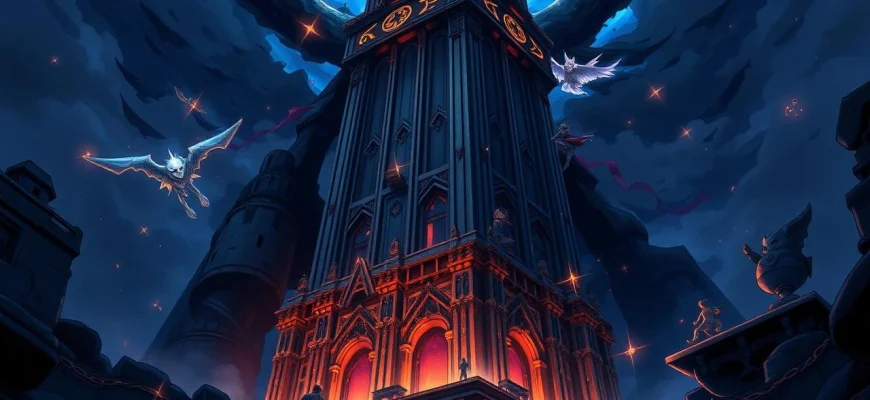If you're a fan of 'Tower of God' (2020), the thrilling anime filled with mystery, adventure, and intense battles, you're probably craving more shows that capture its unique essence. This article is here to help! We've curated a list of 10 movies and TV shows that share similar themes, captivating storytelling, and dynamic characters. Whether you love the high-stakes competition, intricate world-building, or emotional depth of 'Tower of God,' you'll find something here to satisfy your craving for more epic adventures.

Dragon Ball Z (1989)
Description: While more battle-focused, DBZ shares with 'Tower of God' the theme of constant progression through increasingly powerful opponents. The Saiyan transformation concept parallels Bam's hidden potential. Both feature tournament arcs and the idea that true strength comes from pushing one's limits.
Fact: Goku was originally supposed to stay dead after the Cell saga. The 'Super Saiyan' transformation was created to reduce animation costs. Vegeta was named after 'vegetable', continuing the food naming theme for Saiyans.
 Watch Now
Watch Now 
One Piece (1999)
Description: Both 'One Piece' and 'Tower of God' feature grand adventures with found family themes, where diverse characters with unique abilities band together. The expansive world-building and gradual power progression are similar, as is the mix of serious drama with lighthearted moments. The Straw Hats' journey parallels Bam's climb up the tower.
Fact: Holds the Guinness World Record for most copies published for same comic series by a single author. Creator Eiichiro Oda originally planned the series to run for 5 years. The Going Merry's funeral is one of the most emotional scenes in anime history.
 Watch Now
Watch Now 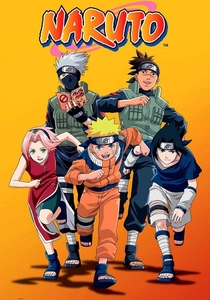
Naruto (2002)
Description: Like 'Tower of God', 'Naruto' follows an outcast protagonist striving for recognition in a competitive world. The chakra system parallels shinsu manipulation, and both feature tournament arcs that test characters' abilities. Themes of destiny versus self-determination are central to both series.
Fact: Creator Masashi Kishimoto based Naruto's personality on himself as a child. The 'Rasengan' was inspired by Dragon Ball's Spirit Bomb. Itachi Uchiha was originally planned to appear only briefly but became a major character.
 Watch Now
Watch Now 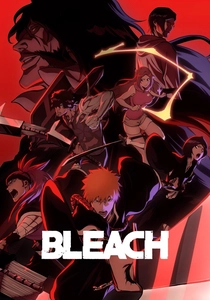
Bleach (2004)
Description: Shares with 'Tower of God' a protagonist who gains extraordinary powers and must navigate a hierarchical supernatural world. The Soul Society arc's structured progression through ranks and tests resembles the tower's floor system. Both feature intricate power systems (Shinsu/Reiatsu) and sword-based combat.
Fact: The author Tite Kubo originally wanted to name the series 'Black' or 'White'. Ichigo's sword Zangetsu was inspired by a kitchen knife. The 'Bankai' concept revolutionized shonen power-ups.
 Watch Now
Watch Now 
The God of High School (2020)
Description: Similar to 'Tower of God' (2020), 'The God of High School' is a high-energy action anime with a tournament arc structure, supernatural abilities, and a protagonist who must prove himself in a competitive environment. Both series feature intense battles, mysterious organizations, and a blend of martial arts with fantastical elements.
Fact: Based on a popular webtoon by Yongje Park. Features a mix of Korean mythology and modern martial arts. The animation is handled by MAPPA, known for high-quality action sequences.
 Watch Now
Watch Now 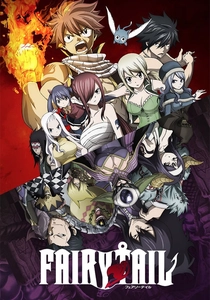
Fairy Tail (2009)
Description: Shares with 'Tower of God' a strong emphasis on friendship and guild/team dynamics. Both feature protagonists who start weak but have hidden potential, with power systems tied to magical energy. The balance between action and comedy, plus the found family theme, makes them tonally similar.
Fact: Known for its 'power of friendship' theme taken to extreme levels. The author Hiro Mashima created the series after being inspired by a pub visit. Features one of anime's most iconic guild halls as a central location.
 Watch Now
Watch Now 
Hunter x Hunter (2011)
Description: Like 'Tower of God', 'Hunter x Hunter' follows a young protagonist entering a dangerous world filled with trials and powerful adversaries. Both series explore themes of friendship, personal growth, and the pursuit of a grand goal (finding a father/climbing the tower). The intricate power systems (Nen/Shinsu) and strategic battles are also similar.
Fact: Created by Yoshihiro Togashi, who also made Yu Yu Hakusho. Features one of anime's most complex power systems (Nen). The Chimera Ant arc is considered one of the best story arcs in shonen anime.
 Watch Now
Watch Now 
My Hero Academia (2016)
Description: Both series feature protagonists who start powerless in a world where special abilities are common. The school/training environment in MHA parallels the tower's test system. Themes of heroism, self-improvement, and overcoming limitations are central to both. The colorful cast of characters with unique powers is another similarity.
Fact: Inspired by American superhero comics, especially Spider-Man. Creator Kohei Horikoshi originally planned a much darker story. All Might's 'United States of Smash' became an instantly iconic anime moment.
 Watch Now
Watch Now 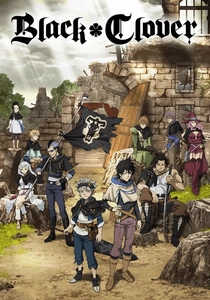
Black Clover (2017)
Description: Like Bam in 'Tower of God', Asta is an underdog in a world where magical ability determines status. Both series feature intense training arcs, rivalries that become friendships, and protagonists who defy expectations through sheer determination. The squad-based structure of the Magic Knights mirrors the team dynamics in Tower of God.
Fact: Initially criticized for its loud protagonist but gained popularity over time. Holds the record for most consecutive weekly chapters in Shonen Jump without breaks. The anime's opening 'Haruka Mirai' became a massive hit.
 Watch Now
Watch Now 
The Rising of the Shield Hero (2019)
Description: This shares with 'Tower of God' the theme of an underdog protagonist who must overcome distrust and adversity in a fantasy world. Both Naofumi and Bam start as seemingly weak characters who grow through their experiences. The isekai setting and RPG-like progression systems are comparable to the tower's floor-based challenges.
Fact: Based on a light novel series that sparked controversy for its revenge themes. Features an unusual protagonist who specializes in defense rather than attack. The anime's popularity led to multiple seasons and spin-offs.
 Watch Now
Watch Now 
